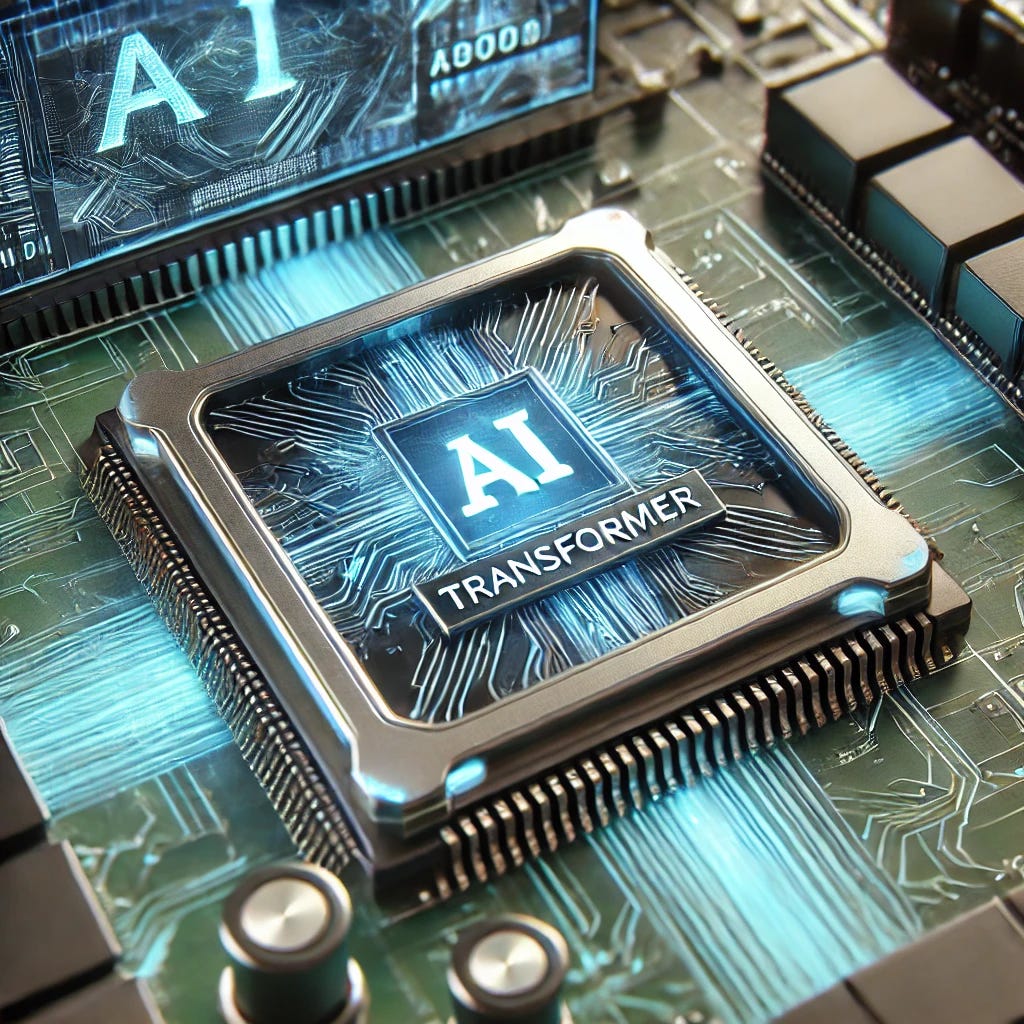The Single-Algorithm AI Chip
Plus a tremendous activity in funding activity in generative AI startups.
Next Week in The Sequence:
Edge 409: We dive into long-term memory in autonomous agents. The research section reviews Microsoft LONGMEM reference architecture for long-term memory in LLMs. We also provide an introduction to the super popular Pinecone vector database.
Edge 410: We dive into VTC, a super innovative method from UC Berkeley and Stanford for fiar LLM serving.
You can subscribe to The Sequence below:
📝 Editorial: The Single-Algorithm AI Chip
The dominance of the transformer architecture in generative AI represents a pivotal moment for the AI chip industry. This revolution has sparked a renaissance in chip design, propelling NVIDIA to become one of the world's most valuable companies and fueling substantial funding for new AI chip startups. The demand for AI-based hardware seems limitless, driven not only by the rapid pace of AI advancements but also by the slow evolution of AI model architectures beyond transformers.
Simply put, transformer dominance as the preferred architecture in generative AI is the best thing to have happened to the AI chip industry. The rationale is clear: when most AI software innovation centers around a single architecture, it becomes logical for AI chip manufacturers to optimize for that paradigm. Given that AI chip production cycles are significantly longer than software development cycles, such optimization is only feasible if model architectures remain stable for years. Conversely, constant changes in architecture paradigms would render AI chip optimization impractical and economically unviable.
Last week provided a notable example of this market dynamic between AI chips and software: Etched, a new AI chip startup, secured $120 million in funding to develop chips specialized in transformer architectures. Etched's chip, Sohu, is capable of processing 500,000 tokens per second with the throughput of a Llama 70B model, surpassing NVIDIA's Blackwell (B200) GPUs in speed and cost efficiency. Sohu's specialization in a single algorithm allows for a streamlined logic flow, accommodating more mathematical blocks and achieving an impressive 90% FLOPS utilization.
The dominance of transformer architecture empowers startups like Etched to optimize chip designs to compete effectively with established industry giants. The greatest paradox of the AI chip renaissance lies in the fact that innovation is spurred not by rapid AI evolution, but by its deliberate pace.
🌝 Recommended – Finally: Instant, accurate, low-cost GenAI evaluations
Why are Fortune 500 companies everywhere switching to Galileo Luna for enterprise GenAI evaluations?
97% cheaper, 11x faster, and 18% more accurate than GPT-3.5
No ground truth data set needed
Customizable for your specific evaluation requirements
🔎 ML Research
FineWeb
HuggingFace published a paper detailing how they built FineWeb, one of the largest open source datasets for LLM pretraining ever built. FineWeb boosts and impressive 15 trillion tokens from 96 Common Crawl snapshots —> Read more.
Agent Symbolic Learning
Researchers from AIWaves published a paper introducing a technique known as agent symbolic learning aimed to self-improve agents. The core idea is to draw a parallel between an agent pipeline and a neural net and use symbolic optimizers to improve the agent network —> Read more.
APIGen
Salesforce Research published a paper introducing APIGen, a pipeline designed to synthesize function-calling datasets. APIGen was used to train models over 7B parameters based on state-of-the-art benchmarks —> Read more.
MISeD
Google Research published a paper introducing Meeting Information Seeking Dialogs(MISeD), a dataset focused on meeting transcripts. MISeD tries to optimize for finding factual information in meeting transcripts which could be a notoriously difficult task —> Read more.
Olympic Arena
Researchers from Shanghai Jiao Tong University, Generative AI Research Lab published a paper detailing the results of the Olympic Arena superintelligence benchmark. Olympic Arena was designed to evaluate models across many disciplines and modalities —> Read more.
Exams for RAG Pipelines
Amazon Science published a paper discussing a technique to evaluate the accuracy of RAG applications. The methods mimics an exam generation process based on item response theory —> Read more.
🤖 Cool AI Tech Releases
MLflow at SageMaker
Amazon is launching support for Mlflow in its SageMaker platform —> Read more.
Multimodal Arena
Chatbot Arena just added support for multimodal models —> Read more.
Meta LLM Compiler
Meta AI open sourced its LLM Compiler, a family of Code LLama based models with compiter and optimization capabilities —> Read more.
Character Calls
Character AI introduced Character Calls, a voice interaction experience with Characters —> Read more.
🛠 Real World AI
Incident Response at Meta
Meta shares some details about their usage of generative AI for incident response —> Read more.
ETA at Lyft
Lyft discusses the ML techniques used to ensure estimated time of arrival(ETA) reliability for riders —> Read more.
📡AI Radar
Stability AI raised a new round of funding and appointed a new CEO.
Day.ai raised $4 million from Sequoia to build an AI-first CRM.
Axelera raised $68 million for edge AI chips.
Etched raised $120 million to build transformer specialized chips.
Emergence raised $97.2 million for its agent platform.
EvolutionaryScale raised $142 million and launched a new AI model for protein discovery.
Iconic VC firm Kleiner Perkins raised $2 billion for new funds for startups leveraging generative AI for growth.
AI-ecommerce platform Daydream secured $50 million in new funding.
illumex raised $13 million for its data governance infrastructure for generative AI —> Read more.
Hebbia, which uses generative AI to search large documents, raised a $100 million Series B.
SoftBank formed a joint venture with Tempus to invest in healthcare AI.
Andrew Ng is raising $120 million for his next AI fund.
AI low-code platform Creatio raised $200 million in new funding.
Dappier raised $2 million to build an LLM content marketplace.
Substrate raised $8 million for its modular AI platform.


